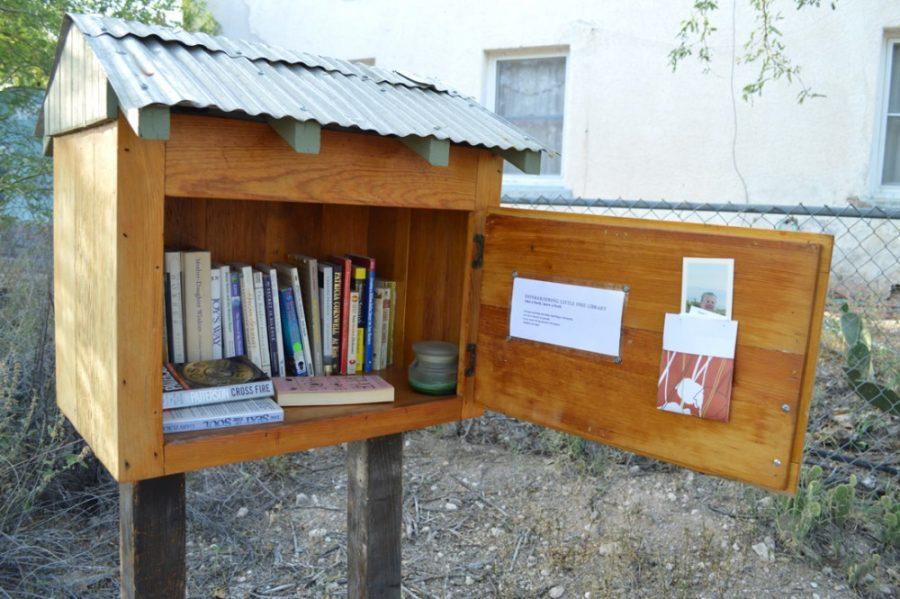When the world seems to take on a cynical tint, one fact helps brighten the day: There are still more libraries than McDonald’s restaurants in the U.S. Many people love libraries, and more libraries make the world a better place. This idea spurred the growth of the Little Free Libraries.
Little Free Libraries began back in 2009 when Todd Bol built a tribute to his mother in the form of a one-room schoolhouse miniature filled with books and a sign that proclaimed “Free Books.” Bol’s library gained popularity, and he soon partnered with Rich Brooks of the University of Wisconsin-Madison to turn the idea into a social enterprise. Thus, Little Free Libraries was born.
The recipe for each library is simple: a container, books and a community. The basic idea is that anyone can “take a book, return a book.” Thus, books may change between familiar hands.
“[It’s] an approachable, easily scalable distribution point for books,” said Kris Huson, director of marketing and communications for Little Free Libraries. “It can be placed in rural and urban areas not serviced by public libraries or bookstores.”
As of January 2015, the number of Little Free Libraries around the world is estimated to be over 25,000 and growing, according to LittleFreeLibrary.org. What can possibly fuel such rapid growth? The universal ideals upholding the libraries: literacy and community.
The printed word was arguably the greatest innovation of the last 2,000 years, and Little Free Libraries celebrates this. By creating a hub for free book exchanges, Little Free Libraries hopes to kindle a love for reading and literacy in every generation.
“Illiteracy is at the root of serious societal problems such as poverty, poor health, violence and crime,” Huson said. “Literacy is the foundation to well-being and successful outcomes. Little Free Library is a fun way to introduce books, build a love of reading, and is an entry point to literacy that’s conveniently located right at the curbside.”
The curbside attraction of a Little Free Library helps create a tight-knit community bond. Little Free Libraries from around the world highlight the creativity and diversity of the places they come from, with containers coming in the forms of recycled newspaper boxes, miniaturized British phone booths and mirror boxes. The Little Free Library in Tucson’s own Spring-Dunbar neighborhood is guarded by a Gila monster sculpture reading a book. More important than the library itself is the people connected to it.
Each library acts as a community tent pole, drawing together those living in the surrounding area. Each library has one official “steward” that tends to the upkeep of the library. Little Free Libraries act as a conduit that brings the community together to encourage participation of readers of all ages.
Little Free Libraries hopes to promote wisdom across generations, and their method is simple: Appeal to young audiences.
You can check out one of the 19 located around town.
_______________
Follow Alex Furrier on Twitter.









